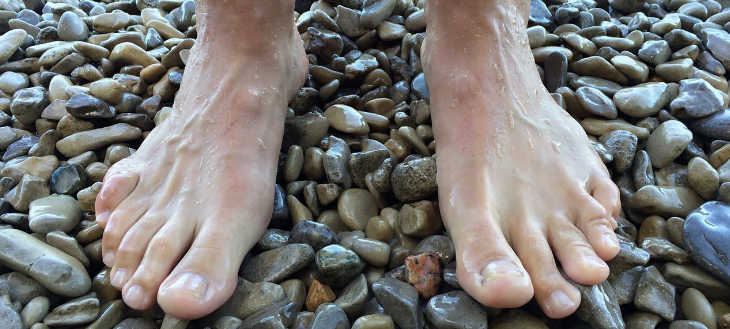
What is Gout and Why You Should Know About It?
That sudden burning pain, stiffness and swelling in your joints means one thing: Gout! But what is gout and how can you prevent it?
Since gout affects 3.9% of US adults – 5.9% men and 2% women – it can be a real problem for many. Some people only have infrequent flare-ups but many are plagued by recurring symptoms.
It often feels like being burned by a hot poker and is just absolutely miserable. The symptoms of joint pain are often debilitating causing missed work and inability to get through your activities of daily living for days to weeks.
However, I’ve had patients who have had repeated flare-ups of gout and we’ve had success in reducing them by introducing some natural remedies. That’s why I want to tell you about gout and ways prevent it.
What is gout?
Gout is a painful form of arthritis. It occurs when there is too much uric acid in the blood leading to the formation of urate crystals that can accumulate in the joint causing horrible pain, stiffness and swelling.
Normally, uric acid is dissolved in the blood and not crystallized. It passes through the kidney and is excreted into the urine. But when there is too much uric acid whether from diet, genetics or not enough excretion through the kidney, crystallization takes place. Gout crystals are shaped like needles, and as gout sufferers will tell you, they feel like needles!
Unfortunately, those who suffer from gout will often have it repeatedly and can even develop kidney stones as a result. That’s why you need to take steps to improve your chances of gout flare ups. And it’s important to take steps towards prevention as repeated gout attacks can cause joint damage, besides suffering.
How do you get gout? What are the risk factors?
Well, it comes from a breakdown of purines, a specific chemical compound found in some foods. Purines come from steak, organ meats and seafood. But other types of food and beverages also can cause higher levels of uric acids such as alcohol and high fructose corn syrup.
There are also certain risk factors in developing gout such as obesity, high blood pressure, diabetes, high cholesterol kidney disease and just being a male (as women naturally tend to have lower uric acid levels.)
Since gout crystallizes easier in lower temperatures, the extremity joints are more common areas affected by gout. Normal levels of uric acid are actually beneficial to the body as uric acid is a powerful antioxidant.
 What are some natural ways to manage gout?
What are some natural ways to manage gout?
During a flare up:
- Drink a lot of water to help flush out the uric acid.
- Eat only raw fruits and vegetables for two weeks.
- Consume no alcohol.
- Drink celery juice as it lowers serum uric acid. It can be diluted with water.
- Take bromelain, a proteolytic enzyme that helps to metabolize out inflammation. It will also help to digest proteins properly.
- Drink tart cherry juice which gives you a higher equivalent of the enzymes over eating them. These compounds affect the enzyme pathways resulting in a large reduction of inflammation.
RELATED – Why You Need to Embrace an Anti-Inflammatory Diet
For prevention purposes:
- Drink A LOT of water! Drink half your body weight in pounds in water in ounces. So if you weigh 150 pounds, drink at least 75 ounces of water a day.
- Take omega 3 fatty acids which reduce inflammation.
- Take magnesium, an alkaline mineral that decreases uric acid formation.
- Take one to two tablespoons of organic apple cider vinegar.
- Eliminate soda. Drinking two sodas a day increases risk of gout by 85%
- Exercise regularly. It helps to normalize insulin levels and reduce insulin resistance a risk factor for gout. It can also increase circulation and help normalize uric acid levels.
- Avoid the top three uric acid foods: organ meats, sardines and anchovies.
So now we’ve answered the question, “What is gout?”
Hopefully by making some simple changes, you will see a change in the incidence of gout flare up or possibly even stop your gout forever! I care about your overall wellness. If you have any concerns about your health, please talk to me at your next appointment.


Write a Comment